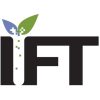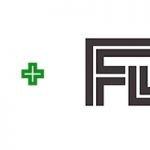Food businesses must prioritize safety and quality by taking every known precaution to protect their foods, customers, employees, and businesses. The most effective way for food brands to ensure safety, quality, and compliance is to use technology to elevate their quality management programs.
Technology, including artificial intelligence (AI), the Internet of Things (IoT), blockchain, and machine learning, can make food significantly safer by improving food safety protocols, quality control, compliance, and supply chain management.
The Importance of Quality Management
Whether you’re a processor, manufacturer, distributor, retailer, or other food business, you must ensure that your safety and quality practices are consistent and properly maintained. And you must confirm that all employees follow gold standard safety protocols to minimize risks and maximize safety. But that isn’t enough on its own. You must also manage your entire supply chain to be certain that foods are safe and proper protocols are followed through every step of the journey.
Businesses need to maintain high-quality standards while also scaling production, introducing new products, providing exceptional customer service, and meeting evolving consumer demands. That’s no small feat! Fortunately, several tech tools now exist that can help food brands elevate their quality management programs and safety efforts.
Quality Management Tools Have Improved Dramatically
The way that organizations manage their food safety and quality programs has improved significantly over the years. Savvy food businesses have ditched their manual paper systems due to drawbacks such as being unable to provide real-time, integrated data across an enterprise. Manual systems also come with compliance risks, as employees could do sloppy or incomplete work on inspections, audits, and safety checks — or skip them altogether. Tech solutions offer more efficient and accurate ways to conduct and track quality management programs.
Food businesses should rely on digital quality management solutions that:
- Are made specifically for the food sector, addressing food brands’ unique challenges and needs.
- Are comprehensive, offering audit management, compliance tracking, risk assessment, supplier quality management, and quality control in one easy-to-use solution.
- Include mobile auditing features to enhance on-site inspection efficiency, which is crucial for maintaining quality in fast-paced environments.
- Feature compliance and reporting capabilities to ensure adherence to the latest regulatory requirements.
- Allow brands to manage their suppliers, ensuring everyone is committed to the highest safety and quality standards, as any weak link in the supply chain can jeopardize the integrity of the food, leaving end-users vulnerable.
Technologies To Elevate Quality Programs
The integration of technology in the food sector has been exciting, and we have learned much about which technologies offer the greatest benefit. Some of the most valuable solutions include:
- Busy food brands can leverage automation to reduce administrative burdens and time-consuming tasks and improve efficiency, consistency, accuracy, and productivity.
- AI and machine learning. These solutions offer predictive maintenance of equipment, quality control, and yield optimization, and give business owners critical, real-time data to drive more informed decision-making. Additionally, machine learning algorithms can predict food safety risks based on various parameters, such as storage conditions and handling.
- IoT devices monitor safety and quality parameters, including temperature, humidity, and vibration to identify and either resolve or alert companies to safety and quality risks. IoT provides constant feedback, so food brands can quickly prevent (or remediate) safety breaches and quality degradation.
- Blockchain can provide food authentication through increased transparency and enhanced food traceability. Food brands can leverage blockchain technology to ensure the food they’re getting is safe, authentic, and high-quality. Blockchain can trace food back to its source to prevent food fraud, increase food safety, and improve recalls in the event of a safety breach.
A New Era of Food Safety & Quality Software
As these technologies have made their way into the food industry, we are seeing continuous improvement in quality management tools, including:
- More comprehensive functions. When multiple functions are packaged together in a single intuitive solution, it allows food brands to streamline their quality management processes, aligning with industry-specific requirements.
- More robust compliance management. Additional compliance management features help brands better understand ever-evolving regulations and adhere to stringent safety standards. And that’s reassuring for customers and end-users, including the retailers that sell the products, the restaurants that serve them, and the consumers that eat them.
- Focus on supply chain management. Supply chain management has seen a technological overhaul around quality assurance, providing more transparency and traceability from farm to fork. Focusing on every point across the supply chain is crucial in an industry where the quality of the end product is directly influenced by the quality of the sourced materials.
- Mobile auditing. Mobile auditing solutions within quality monitoring programs allow organizations to facilitate real-time data collection and reporting, a critical factor for onsite inspections in food production, processing, manufacturing, and retail environments.
- Accessible for all. As tech solutions have become more affordable, accessible, scalable, and user-friendly, they have become more attainable for food businesses of all sizes and budgets. While some brands may worry that digital quality management solutions require significant investment, think of the ROI you’ll receive by avoiding brand damaging and expensive safety and quality breaches.
Digital quality management solutions have become essential for every food business, allowing brands to avoid costly, damaging breaches. Food businesses would be wise to adopt and embrace this new era of quality management solutions to maximize safety, minimize risks, and demonstrate their commitment to quality and compliance.







